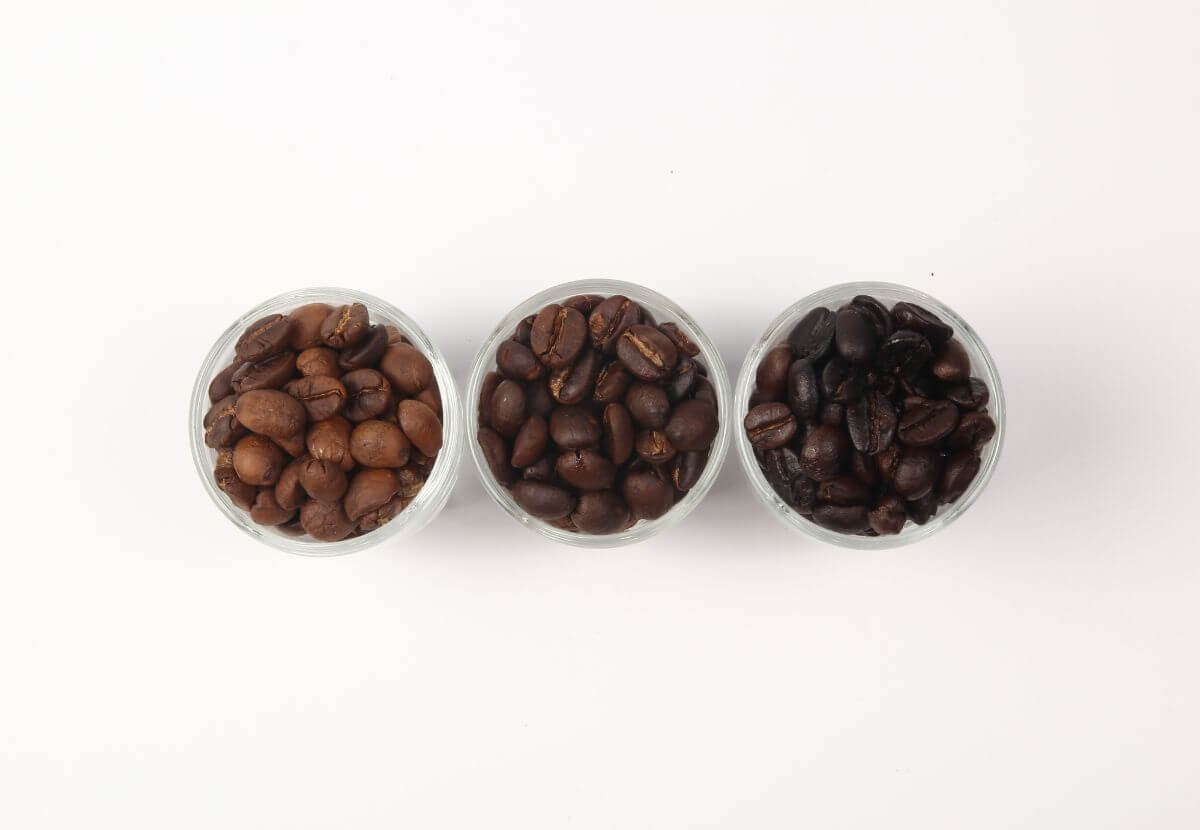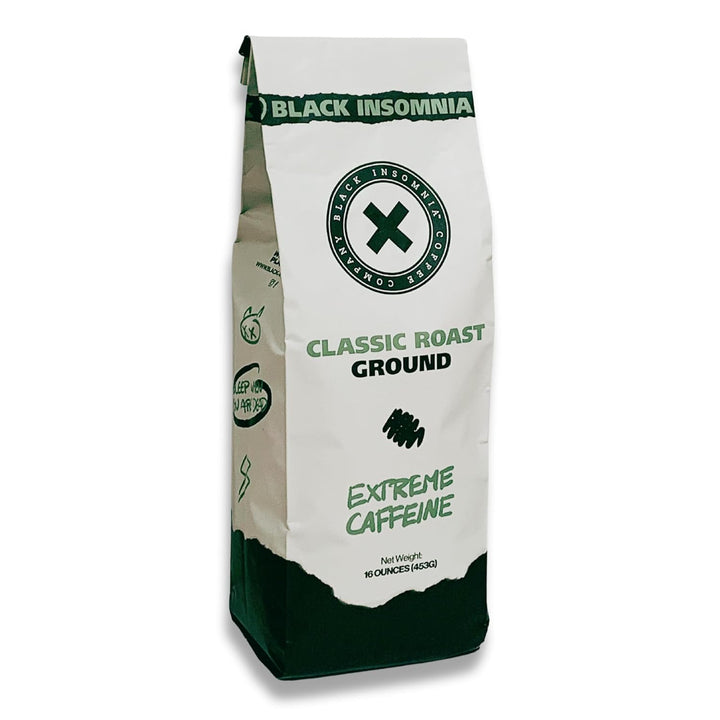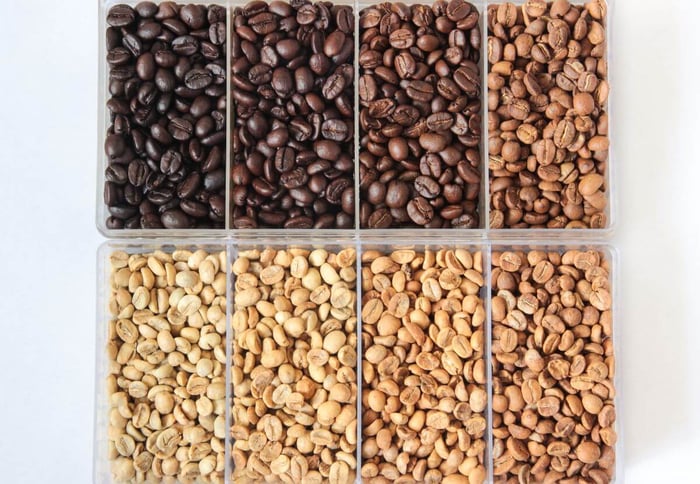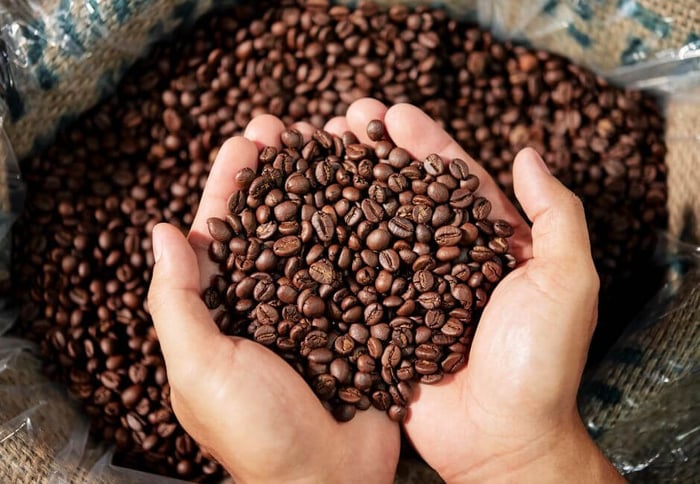Coffee, the beloved caffeinated beverage that has captured the hearts (and taste buds) of millions around the world, holds an irreplaceable position in our daily lives. With its invigorating aroma and rich flavors, coffee has become a quintessential part of our morning routine and a comforting companion throughout the day. Whether enjoyed as a quick pick-me-up or savored during leisurely moments, coffee has ingrained itself into our culture and society.
When it comes to coffee, there is an ongoing debate that sparks curiosity among enthusiasts and health-conscious individuals alike – the battle between dark roast and light roast. Apart from personal preferences for flavor profiles, health considerations have emerged as a significant factor influencing this discussion.
Specifically, how do these different roasts impact our stomachs? Are the bold flavors of a dark roast too intense for sensitive stomachs?
Or does the acidity of light roast coffee pose potential risks? This article aims to delve into this intriguing debate by examining both sides of the argument.
By exploring scientific research, expert opinions, and personal experiences, we will shed light on whether dark roast or light roast coffee is better for your stomach. So let us embark on this journey together to unravel the mysteries surrounding these distinct coffee roasts and their effects on our digestive system.
Understanding Coffee Roasting Process
Coffee roasting is a crucial step in the journey from bean to brew. It is an art form that transforms raw, green coffee beans into the aromatic and flavorful beverage we all love.
The process involves applying heat to the beans, causing numerous chemical reactions that ultimately determine the taste and characteristics of the resulting coffee. During roasting, coffee beans undergo various physical and chemical changes.
As heat is applied, the moisture inside the beans evaporates, leading to expansion and a popping sound known as "first crack." This stage is critical for determining roast level and flavor development. The longer beans are roasted past first crack, the darker they become.
Explanation of how coffee beans are roasted
The actual roasting process occurs in rotating drums called roasters. These machines provide controlled heat while constantly agitating the beans to ensure even roasting.
Typically, temperatures range from 370°F (188°C) for light roast to 480°F (249°C) for dark roast. Light roast coffee undergoes a shorter roasting time, stopping right after first crack has occurred.
This results in a lighter-colored bean with more acidity preserved and subtle flavors that showcase its origin's nuances. On the other hand, dark roast coffee requires a longer roasting time beyond first crack until it reaches what's known as "second crack." At this point, oils migrate to the surface of the bean, giving it a shiny appearance and releasing rich flavors with reduced acidity.
It is important to note that different coffee varieties may require slight adjustments in temperature or duration during roasting to highlight their unique characteristics properly. The skillful balancing act between time and temperature allows expert roasters to create an array of flavor profiles tailored to individual preferences.
Dark Roast Coffee: The Bold Choice
When it comes to dark roast coffee, one immediately thinks of its captivating attributes—its rich flavor, intense aroma, and full-bodied nature. Dark roast beans are
roasted for a longer period at higher temperatures, resulting in a deep brown color and an oilier surface.
This extended roasting process allows the flavors to develop fully, creating a robust and bold taste that many coffee enthusiasts find irresistible. Beyond its captivating taste profile, dark roast coffee offers potential benefits for stomach health.
One such advantage lies in its lower levels of chlorogenic acid compared to lighter roasts. Chlorogenic acid is a compound found naturally in coffee beans that is known to contribute to increased gastric acid production and may lead to acid reflux symptoms for some individuals.
By choosing dark roast coffee with reduced chlorogenic acid levels, people prone to acid reflux can potentially minimize their risks and enjoy their cup of Joe without discomfort. In addition to lowering chlorogenic acid content, dark roast coffee has been found by some studies to stimulate less gastric acid production overall.
This phenomenon can be particularly beneficial for individuals with sensitive stomachs or those who experience digestive issues after consuming acidic foods or beverages. By stimulating less gastric acid secretion, dark roast coffee reduces the chance of triggering excessive acidity in the stomach, leading to improved digestion and reduced discomfort.

Light Roast Coffee: The Delicate Option
When it comes to light roast coffee, one can expect a delightful experience characterized by its bright flavor and subtle floral notes. Light roast coffee beans are usually roasted for a shorter period of time and at lower temperatures compared to their darker counterparts. This allows the natural flavors of the coffee beans to shine through, resulting in a refreshing cup of joe that is often described as crisp and nuanced.
One notable characteristic of light roast coffee is its higher acidity levels. While some may find this aspect off-putting, it can actually be beneficial for individuals with sensitive stomachs.
The increased acidity in light roast coffee can help promote gastric emptying, which refers to the process of food leaving the stomach and entering the small intestine. This accelerated gastric emptying can aid in reducing bloating or discomfort that may be experienced after meals, providing relief to those who are prone to such digestive issues.
Higher Caffeine Content: Promoting Gastric Emptying
Not only does light roast coffee offer a vibrant flavor profile, but it also typically contains higher levels of caffeine compared to dark roasts. Caffeine is known for its stimulating effects on various bodily functions, including digestion. In particular, higher caffeine content in light roast coffee has been found to promote gastric emptying more efficiently than darker roasts.
Gastric emptying is crucial for maintaining healthy digestion and preventing discomfort or bloating after meals. By facilitating quicker movement of food from the stomach into the intestines, light roast coffee's higher caffeine content aids in efficient digestion and alleviates potential gastrointestinal distress that individuals may experience with slower gastric emptying.
Reduced Risk of Stomach Inflammation: N-methylpyridinium (NMP) Presence
Another intriguing aspect of light roast coffee is the increased presence of a compound called N-methylpyridinium (NMP). Research has shown that NMP, which is formed during the coffee roasting process, exhibits anti-inflammatory properties that could potentially benefit stomach health.
Stomach inflammation can be caused by various factors, including certain foods or stress. By consuming light roast coffee with its higher levels of NMP, individuals may find relief from stomach inflammation.
This can be particularly advantageous for those who have conditions such as gastritis or other gastrointestinal issues that are characterized by inflammation in the stomach lining. While more research is needed to fully understand the direct impact of NMP on stomach health, its presence in light roast coffee suggests a potential link between this delicate option and reduced risk of stomach inflammation.
Personal Factors Influencing Stomach Reaction to Coffee Roasts
Individual differences in tolerance levels for acidity or caffeine content
When it comes to assessing the impact of coffee roasts on stomach health, individual differences play a crucial role. People have varying levels of tolerance to acidity and caffeine, which can greatly influence their stomach's reaction to different coffee roasts.
Some individuals may find that dark roast coffee, with its lower acidity levels, is easier on their stomachs. On the other hand, those who have a higher tolerance for acidity may find light roast coffee more enjoyable without experiencing any discomfort.
Consideration of pre-existing conditions like GERD or gastritis that may impact preference
Pre-existing conditions such as gastroesophageal reflux disease (GERD) or gastritis can significantly impact an individual's preference for dark or light roast coffee. Those who suffer from GERD, characterized by acid reflux and heartburn, may find relief in choosing dark roast coffee due to its lower acidity content.
This can help minimize irritation and the potential exacerbation of their symptoms. Conversely, individuals with gastritis might prefer light roast coffee as it typically has higher acidity levels that could potentially boost gastric acid production and aid digestion.
VI: Expert Opinions & Scientific Studies
A: Compilation of expert opinions from gastroenterologists, nutritionists, and researchers regarding the impact of different roasts on stomach health
To gain a comprehensive understanding of how different coffee roasts affect stomach health, it is essential to consider expert opinions from various professionals in the field. Gastroenterologists emphasize that there is no definitive answer as to which roast is universally better for everyone's stomach as reactions vary among individuals. However, they generally agree that dark roast coffee tends to be gentler on sensitive digestive systems due to its lower acidity levels.
Nutritionists suggest that light roast coffee might be beneficial for those with sluggish digestion due to its higher caffeine content, which can help promote gastric emptying and prevent bloating. Researchers continue to explore the bioactive compounds present in different roasts and their impact on stomach health through studies, further contributing to our understanding of this intricate relationship.
Conclusion
The debate between dark roast and light roast coffee in terms of their impact on stomach health is multifaceted. The personal factors influencing an individual's stomach reaction are crucial, including their tolerance levels for acidity or caffeine content.
Additionally, pre-existing conditions such as GERD or gastritis should also be taken into consideration when choosing a preferred coffee roast. While expert opinions vary, it is clear that there is no one-size-fits-all answer as each person's digestive system reacts differently.
However, by understanding one's own tolerance levels and considering any existing conditions, individuals can make informed choices that align with their specific needs and preferences. So indulge in your preferred cup of coffee with confidence, knowing that you have made a decision based on your unique circumstances.
$19.99
Want better flavor and more caffeine than any other coffee? With Black Insomnia you’ll be more awake than you’ve ever been before! Wake up! Black Insomnia Coffee has been independently verified as The Strongest Coffee in the World with roughly… read moreBlack Insomnia Classic Roast Ground Coffee - The Strongest Coffee in the World - 1lb










